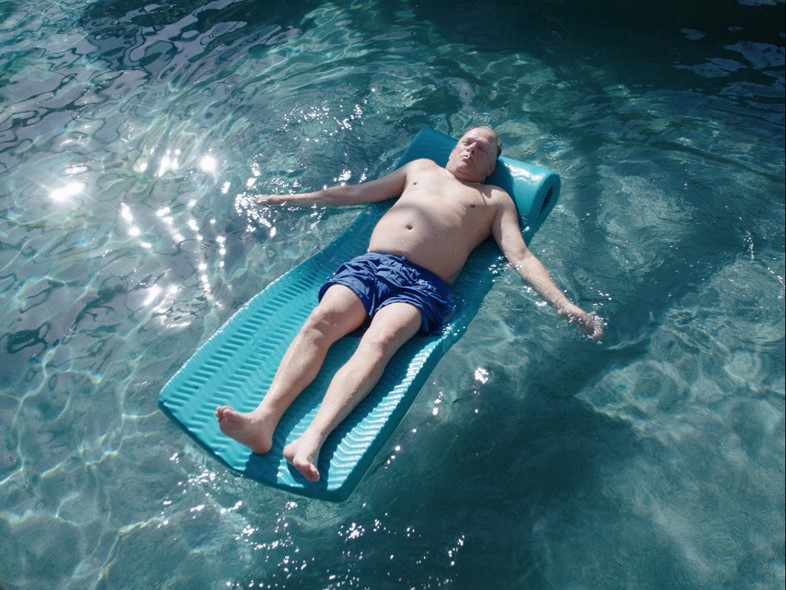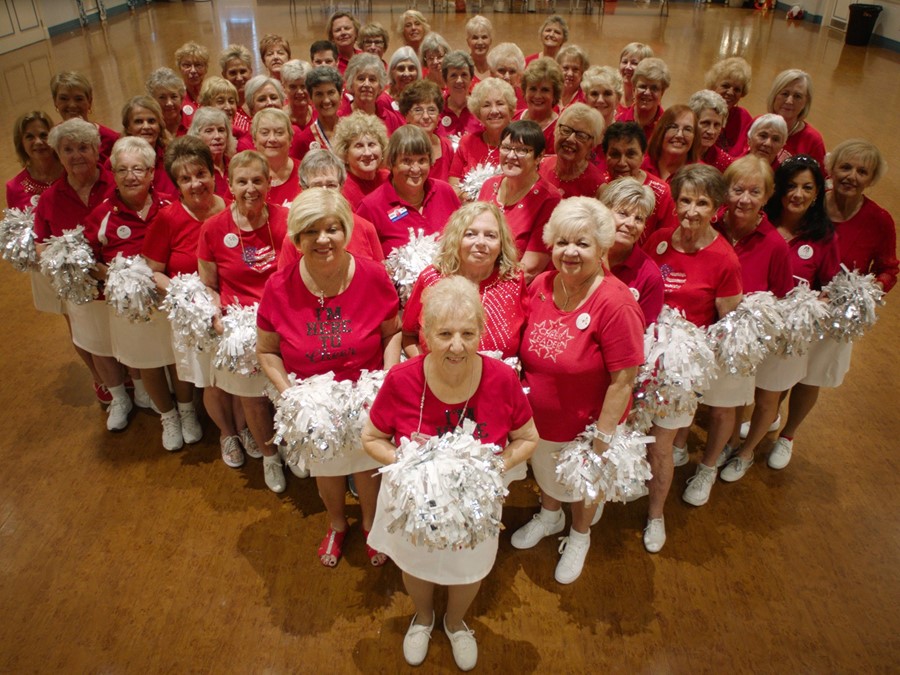Director Lance Oppenheim shares the story of his directorial debut, Some Kind of Heaven, which explores the strange reality of The Villages – Florida’s famed retirement community
“I grew up in South Florida and The Villages are in central Florida. Any time there was a slow news day my local newspaper would print the most outrageous headlines from The Villages,” says Lance Oppenheim on his initial encounter with the famed retirement community and the subject of his directorial debut, Some Kind of Heaven. “When I was in middle school there was a myth about the high rate of STDs and the papers got a real kick out of it, lampooning and judging the residents for their more hedonistic ways of living.”
Commonly referred to as a “Disneyland for seniors”, today The Villages has over 130,000 residents, and between 2010 and 2017 was the fastest growing metropolitan area in the United States. With a wide variety of sports clubs and social activities on offer, manicured lawns and Hockney-blue pools, it reads as a nirvana-like holiday camp for the over-55s. For Oppenheim, who’d previously directed Meet the Happiest Guy in the World – a ten-minute short film about Mario Salcedo, a sexagenarian who lives on cruises – it provided a further glimpse into worlds unknown; a deeper dive into the boomers choosing to divorce themselves from society and reject their proposed reality.
“The first question that came to my mind was if you’re in that Peter Pan-space, if you’re returning back to your youth and the desire is to live there, do the problems of your youth also follow you?” says Oppenheim. “No matter how many activities you join, what happens when reality intrudes and your Truman Show boat hits a wall? What happens when the dream becomes a nightmare, when you don’t find your footing in the fantasy and you’re not having the best time of your life?”

Some Kind of Heaven unpacks three versions of an answer. In Barbara, we meet a widow whose late husband pushed for their move to The Villages. The only resident here who’s still working, financially she can’t leave and so she tries to entertain new relationships. Elsewhere are Reggie and Anne: married for 50 years, Reggie’s began experimenting with drugs and exploring a new lifestyle, meaning their commonalities have minimised. And finally Dennis, not officially a resident, who is living out of a van while he searches for “a nice looking lady with some money”. “We were filming with other people but as the process went on, I was really prioritising the stories from people who actively had conflict in their life,” says the director.
His leads he met at a drama club, on a dancefloor and outside Panera Bread respectively, but Oppenheim’s first sense of The Villages’ ulterior side arose when he rented a room via Airbnb. “I found this listing with these two retired rodeo clowns; I moved in and got to know them pretty well. It was nice, they had a lot of friends and were formally a part of a lot of clubs. I later learned the reason they retired from most of the activities in The Villages was that the wife had leukaemia and they were trying to pay her medical bills, so it was that immediate clash – something that seems initially humorous and amusing totally change and [feel] surreal. The fact that these folks were clowning all the time was cool to me, and then the sad reality of this life and sickness and death, catching up with you.”
Intentionally shot with an aesthetic sensibility that takes advantage of The Villages’ blemish-free scenery and Floridian bright sky, the documentary loosely mirrors the contrived elements of its environment. “It isn’t a fly on the wall observational documentary because I just found that impossible to pull off. Partially because of my age, also because when you bring a camera into any setting, especially as artificially constructed as this one is, you immediately corrupt the reality of the world there,” Oppenheim tells AnOther. “So I wanted to lean into that more, to be as meticulous and composed as the place was and create a bubble inside of a bubble. Embracing the artifice, we actually got to something much deeper and truer, allowing for a more open and collaborative relationship with the subjects.”
Ultimately dealing with heartache of varying degrees, the film relies on trust and a certain intimacy between the director and his subjects, something which Oppenheim says led to genuine friendships beyond filming. “I saw them go through such intense moments in their lives, there is this relationship we have that I don’t have with any other friends. I tell them things that I wouldn’t tell other people.” This connection similarly helped determine the film’s narrative and subconsciously led him to reckon with his own experiences. “It’s a movie about relationships – they’re all trying to figure out how to maintain existing relationships, how to start new ones and how to break ones that aren’t working anymore and I thought there was something kind of beautiful about that. I had been in a relationship for a long time and just been dumped [before] going to The Villages, so a lot of those things were on my mind.”
Another relationship that came out of the film was more professional, with Darren Aronofsky (Black Swan) coming on board as a producer. Inspired by an interview he read with Gus Van Sant, Oppenheim found Aronofsky’s email address online and four years ago began a campaign of cold emails. “[Van Sant] basically said your work’s not going to be plucked out of obscurity, so I was motivated by that principle of thought, trying to be an amateur digital sleuth.” Eventually an employee passed the emails on to Aronofsky and the two met for coffee. “He made a very kind and crazy offer, saying ‘I’m busy but I can watch five or six cuts’. He ended up finding more time, and was really our creative cheerleader. He helped shepherd the film.”
One area the documentary never explicitly mentions but which quietly manifests throughout is the political leanings of The Villages: Trump won nearly 70 per cent of residents’ support in both 2016 and 2020, while 98 per cent of the villagers are white. “I always knew how racially homogenous it was and how conservative it’s ethos is – the way it was designed, the vision of America that it’s attempting to portray,” says Oppenheim, “all this stuff is in the film. But it’s hard to divorce The Villages now from the time I was making the film, the context of it being this political pariah. It’s more about how much of yourself you’re willing to give up to a community; a lot of the people derive their sense of identity and self-worth based off off the people they spend time with. You subsume your identity to become part of this larger collective whole, and in some ways I understand this desire – growing old is hard. The smiles people wear mask a lot of grief. So there is an importance of community no matter where you are – even in this strange place – and the desire of making this film was not explicitly about The Villages, but about people going through very real problems against the backdrop of this very unreal, hyper-real place.”
Some Kind of Heaven is out on May 14.
